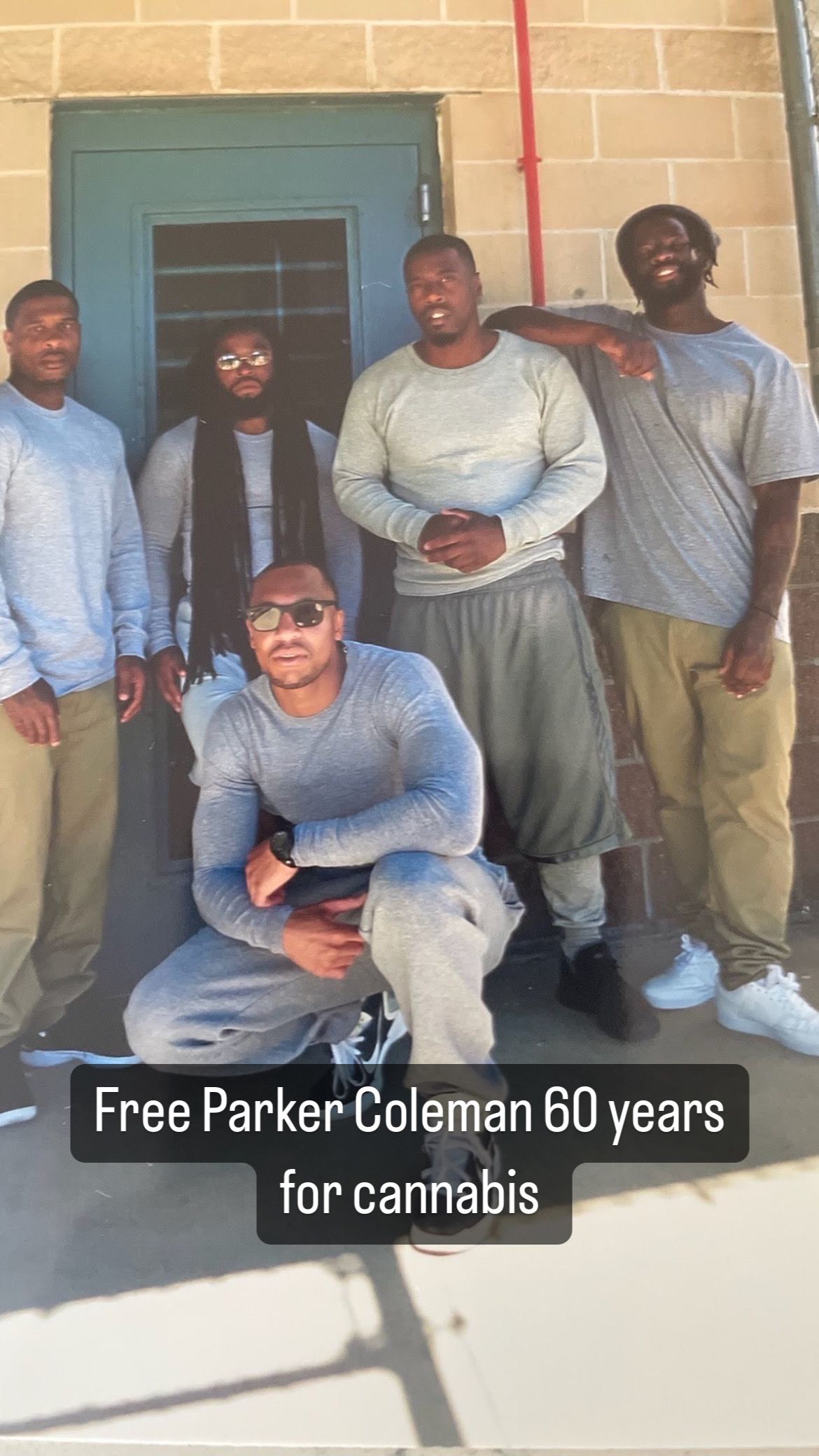
Parker Coleman’s story is one of the most heart-wrenching cases we’ve encountered at FREEDTHC.COM. He is a 37-year-old African American man incarcerated at USP Beaumont, known as one of the toughest and harshest prisons in America. Even during my time in the federal bureau of prisons, I heard grim tales about the severity of Beaumont, particularly for cannabis offenders like Parker, who is serving a de facto life sentence of 60 years.
Upon my initial arrival, the harsh reality of Beaumont, Texas, immediately strikes me. During my first visit, I inquire about the delay, and Parker solemnly explains that a morning stabbing incident caused the hold-up. The oppressive heat in Beaumont only adds to the prison’s austere environment. The administration has effectively turned USP Beaumont into a locked-down facility, with inmates spending 23 hours a day in their cells and receiving only a one-hour break for phone calls and showers. Parker informs me that even that one hour is not guaranteed, underscoring the starkness of his 60-year sentence for a cannabis-related offense.
In addition to the physical confinement, Parker must navigate the treacherous waters of “prison politics” at USP Beaumont. This term encapsulates the constant drama and potential danger inherent in the prison’s environment, despite the strict lockdown measures. Every Tuesday, a bus arrives with new inmates, a majority of whom opt for protective custody due to the perilous conditions rather than face the risks within the general population. The influx of new inmates weekly exacerbates tensions, akin to throwing matches on a powder keg. Parker shares that the identity of these new inmates is often known throughout the prison before they even leave intake, thanks to inmate workers. This can lead to precarious situations, such as Parker potentially being coerced into violent actions against unwanted cellmates to comply with prison politics or face retribution from fellow inmates.
Despite these challenges, Parker Coleman has remained free of institutional violations for years and holds out hope that presidential clemency will one day grant him relief.
Committing to visit Parker once a month has been a solemn pledge for me. The first visit was particularly tough, as I listened to Parker’s accounts of the pervasive violence and the complex dynamics of prison politics. It’s profoundly distressing to know that Parker Coleman, prosecuted from North Carolina for possessing 70 pounds of cannabis, continues to endure such a profound miscarriage of justice.



